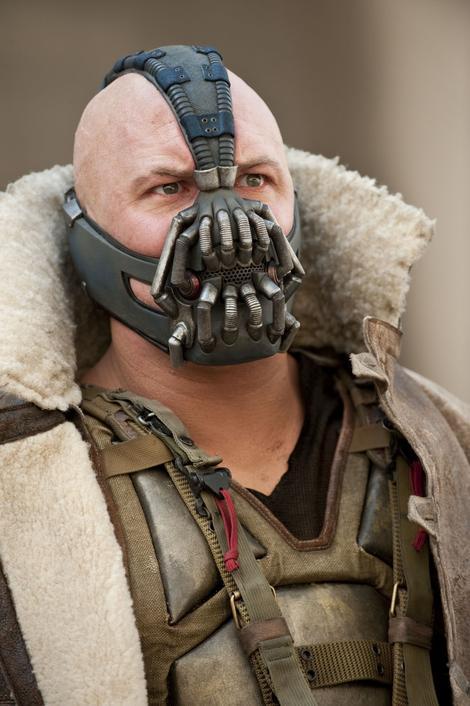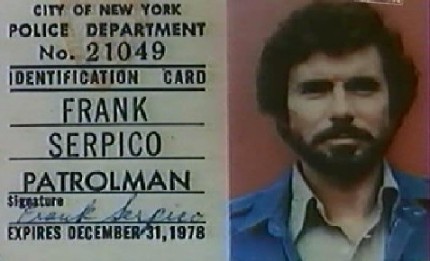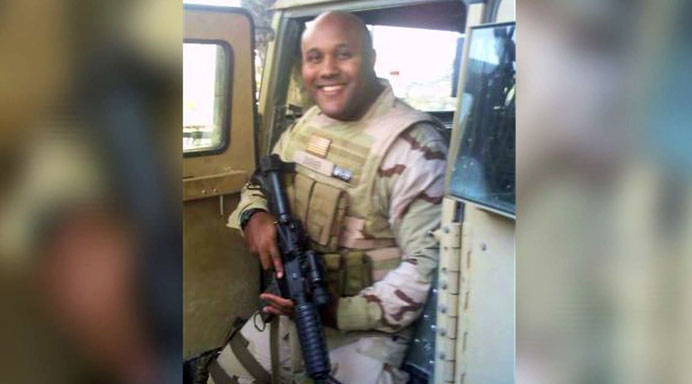KyokushinKarateMan
Train hard, fight easy
Officer Darren Brown isn't the only rotten apple on the Department's police force. 
http://www.washingtonpost.com/polit...5f7142-2c96-11e4-bb9b-997ae96fad33_story.html
"In four federal lawsuits, including one that is on appeal, and more than a half-dozen investigations over the past decade, colleagues of Darren Wilson’s have separately contested a variety of allegations, including killing a mentally ill man with a Taser, pistol-whipping a child, choking and hog-tying a child and beating a man who was later charged with destroying city property because his blood spilled on officers’ clothes.
One officer has faced three internal affairs probes and two lawsuits over claims he violated civil rights and used excessive force while working at a previous police department in the mid-2000s. That department demoted him after finding credible evidence to support one of the complaints, and he subsequently was hired by the Ferguson force."
"Counting Wilson, whose shooting of Michael Brown on Aug. 9 set off a firestorm of protests and a national debate on race and policing, about 13 percent of Ferguson’s officers have faced excessive-force investigations."
"The Ferguson Police Department and city officials declined to comment on the cases.
In all but one of the cases, the victims were black. Among the officers involved in the cases, one is African American."
---------------------------------------------------------------------------------------------------------------------
---------------------------------------------------------------------------------------------------------------------
"The five officers and one former officer have faced complaints of excessive force in five civil rights lawsuits; one of the suits was resolved with the officer not being held liable and the department paying a settlement, and four are pending, one on appeal. Two of the officers faced these complaints during their time at other police departments. One officer allegedly used excessive force in two incidents, both while at the Ferguson Police Department."
------------------------------------------------------------------------------------------------------------------------
"The most recent civil rights lawsuit naming Ferguson police officers was filed days after Brown was shot and involves a September 2011 incident. According to the lawsuit, officers encountered a dazed-looking man walking from behind a building in a residential area. Officer Brian Kaminski ordered 31-year-old Jason Moore to put his hands up and walk toward him, according to the suit, which then alleges that Kaminski fired his Taser prongs into Moore’s chest and legs.
A second officer, Michael White, arrived and physically held Moore while Kaminski repeatedly Tasered him with electric currents, the lawsuit said.
Both officers are white. Moore was black.
Moore, who had a mental disorder, suffered a heart attack on the scene and died. His wife, Tina Moore, filed the lawsuit, saying her husband’s death was another example of Ferguson police using excessive force.
"Peter Dunne, an attorney recently assigned to represent the officers, also declined to comment, saying he has yet to review the case since it was just filed.
Dunne is also representing White in a case that involves one other current Ferguson officer and a former officer who has since been elected to the Ferguson City Council. A 54-year-old welder, Henry Davis, was injured in an altercation with the three officers. Officers say it happened because Davis became combative, which Davis denies. The officers charged Davis with destruction of property when his blood stained their uniforms. Davis is black. The officers are white."
...."The other two officers — John Beaird and Kim Tihen, who is now on the city council — testified that Davis initiated the fight. Davis testified that he asked for a mat to sleep on in the jail cell, a request he said was denied. When he protested, he said, the officers started to hit him, then handcuffed him. White, Davis said, kicked him in the head. Medical records show he suffered a concussion.
The judge said that Davis, who was arrested for allegedly driving under the influence and other violations, suffered injuries but that they were “de minimis” — too minor to warrant a finding of excessive force, records show. The case is being appealed."
 "Dunne also represents the Ferguson officer who faced at least five complaints of excessive force when he worked at the St. Louis Metropolitan Police Department.
"Dunne also represents the Ferguson officer who faced at least five complaints of excessive force when he worked at the St. Louis Metropolitan Police Department.
Eddie Boyd III arrived in Ferguson four years ago after three internal affairs investigations into complaints — in 2004, 2005 and 2006 — that he assaulted and injured children without cause.
Boyd and the children are African American. In at least two cases, the children said Boyd pistol-whipped them. In the 2006 case, the department “sustained” the allegations, concluding that Boyd had used unnecessary force when he struck 12-year-old Jerica Thornton with his pistol, records show.
Boyd was suspended and demoted to the rank of a probationary police officer. But the next year, Christopher Dixon, a high school freshman, said Boyd tackled him as he fled an after-school fight and hit him in the face with the butt of his pistol. Boyd said he accidentally hit Dixon’s face with his handcuffs when Dixon resisted arrest, records show.
Boyd resigned from the St. Louis force shortly after this incident, saying in a deposition he wanted to avoid the “red tape” of what would have been his fourth internal affairs probe. Boyd was not held liable in the Dixon suit. His police department settled out of court, paying the teenager $35,000, according to Dixon’s attorney, Matthew Devoti."

http://www.washingtonpost.com/polit...5f7142-2c96-11e4-bb9b-997ae96fad33_story.html
"In four federal lawsuits, including one that is on appeal, and more than a half-dozen investigations over the past decade, colleagues of Darren Wilson’s have separately contested a variety of allegations, including killing a mentally ill man with a Taser, pistol-whipping a child, choking and hog-tying a child and beating a man who was later charged with destroying city property because his blood spilled on officers’ clothes.
One officer has faced three internal affairs probes and two lawsuits over claims he violated civil rights and used excessive force while working at a previous police department in the mid-2000s. That department demoted him after finding credible evidence to support one of the complaints, and he subsequently was hired by the Ferguson force."
"Counting Wilson, whose shooting of Michael Brown on Aug. 9 set off a firestorm of protests and a national debate on race and policing, about 13 percent of Ferguson’s officers have faced excessive-force investigations."
"The Ferguson Police Department and city officials declined to comment on the cases.
In all but one of the cases, the victims were black. Among the officers involved in the cases, one is African American."
---------------------------------------------------------------------------------------------------------------------
---------------------------------------------------------------------------------------------------------------------
"The five officers and one former officer have faced complaints of excessive force in five civil rights lawsuits; one of the suits was resolved with the officer not being held liable and the department paying a settlement, and four are pending, one on appeal. Two of the officers faced these complaints during their time at other police departments. One officer allegedly used excessive force in two incidents, both while at the Ferguson Police Department."
------------------------------------------------------------------------------------------------------------------------
"The most recent civil rights lawsuit naming Ferguson police officers was filed days after Brown was shot and involves a September 2011 incident. According to the lawsuit, officers encountered a dazed-looking man walking from behind a building in a residential area. Officer Brian Kaminski ordered 31-year-old Jason Moore to put his hands up and walk toward him, according to the suit, which then alleges that Kaminski fired his Taser prongs into Moore’s chest and legs.
A second officer, Michael White, arrived and physically held Moore while Kaminski repeatedly Tasered him with electric currents, the lawsuit said.
Both officers are white. Moore was black.
Moore, who had a mental disorder, suffered a heart attack on the scene and died. His wife, Tina Moore, filed the lawsuit, saying her husband’s death was another example of Ferguson police using excessive force.
"Peter Dunne, an attorney recently assigned to represent the officers, also declined to comment, saying he has yet to review the case since it was just filed.
Dunne is also representing White in a case that involves one other current Ferguson officer and a former officer who has since been elected to the Ferguson City Council. A 54-year-old welder, Henry Davis, was injured in an altercation with the three officers. Officers say it happened because Davis became combative, which Davis denies. The officers charged Davis with destruction of property when his blood stained their uniforms. Davis is black. The officers are white."
...."The other two officers — John Beaird and Kim Tihen, who is now on the city council — testified that Davis initiated the fight. Davis testified that he asked for a mat to sleep on in the jail cell, a request he said was denied. When he protested, he said, the officers started to hit him, then handcuffed him. White, Davis said, kicked him in the head. Medical records show he suffered a concussion.
The judge said that Davis, who was arrested for allegedly driving under the influence and other violations, suffered injuries but that they were “de minimis” — too minor to warrant a finding of excessive force, records show. The case is being appealed."
 "Dunne also represents the Ferguson officer who faced at least five complaints of excessive force when he worked at the St. Louis Metropolitan Police Department.
"Dunne also represents the Ferguson officer who faced at least five complaints of excessive force when he worked at the St. Louis Metropolitan Police Department.Eddie Boyd III arrived in Ferguson four years ago after three internal affairs investigations into complaints — in 2004, 2005 and 2006 — that he assaulted and injured children without cause.
Boyd and the children are African American. In at least two cases, the children said Boyd pistol-whipped them. In the 2006 case, the department “sustained” the allegations, concluding that Boyd had used unnecessary force when he struck 12-year-old Jerica Thornton with his pistol, records show.
Boyd was suspended and demoted to the rank of a probationary police officer. But the next year, Christopher Dixon, a high school freshman, said Boyd tackled him as he fled an after-school fight and hit him in the face with the butt of his pistol. Boyd said he accidentally hit Dixon’s face with his handcuffs when Dixon resisted arrest, records show.
Boyd resigned from the St. Louis force shortly after this incident, saying in a deposition he wanted to avoid the “red tape” of what would have been his fourth internal affairs probe. Boyd was not held liable in the Dixon suit. His police department settled out of court, paying the teenager $35,000, according to Dixon’s attorney, Matthew Devoti."
Last edited:
 "Another Ferguson officer faced a complaint on a previous job.
"Another Ferguson officer faced a complaint on a previous job.




 When shyt really went down, though...
When shyt really went down, though...

